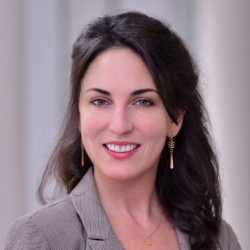14 Aug Social Media Seen As Important Resource For LVAD Patients and Caregivers
 MedicalResearch.com Interview with:
MedicalResearch.com Interview with:
Dr. Kristin Kostick PhD on behalf of the authors
Research Associate – Decision Making and Ethics Research Program
Center for Medical Ethics and Health Policy
Baylor College of Medicine
Houston, TX
Medical Research: What is the background for this study? What are the main findings?
Response: The idea of this study came from a larger research study we’re doing to develop and test a decision aid for patients and caregivers considering LVAD treatment. As part of that study, we interviewed LVAD patients, candidates, caregivers and decliners of LVAD treatment to explore their decisional needs. One of the things that kept coming up in these interviews was the need for “support,” which everyone, including clinicians, identified as a crucial aspect of post-implant recovery. There is an excellent clinical support team at our partnering hospital in Houston, as well as a community of LVAD recipients and caregivers where people can get together to share their stories and resources face-to-face. But for other people who find it difficult to get to the hospital, either because they have transportation barriers or they simply live too far away, we began to wonder whether support services might be available to them in virtual settings. So we decided to do this analysis to see what social media sites exist for the LVAD community. What is the content of these sites? Are there different kinds for different support needs? What are patients getting from them? How might they be used in the future for improving patient care and support?
Medical Research: What should clinicians and patients take away from your report?
Response: This is the first systematic analysis of LVAD-related social media sites, and one of the few systematic content analyses of health-related social media sites in general. Because the field of social media analysis for the purposes of health research – as opposed to say, for marketing analytics – is so new, we hope that the methodologies from our study provide a preliminary framework for other researchers exploring other health-related social media. We based the parameters of this framework on aspects that are important to social media in general – things like scope, audience, usability and user motivation. But we wanted to move beyond these to think about aspects of social media that are specific to clinical populations, especially those seeking treatment and support for end-stage conditions. Wehope that clinicians will take away the message that social media sites can be effective platforms for offering patient education and support, but that they cannot be used indiscriminately. Because most of the sites contain user-generated content, and because understandings of LVAD treatment, prognosis and recovery factors vary across patients, caregivers and even many clinicians, there is a lot of room for variability and error in the information that people receive online. We also expect that clinicians will come away with a better, though preliminary, understanding of the different motivations patients have for using social media. As for what patients can take away from our study, we hope that those in need of alternative support mechanisms will explore thismedium as a resource, to see if it works for them.
Medical Research: What recommendations do you have for future research as a result of this study?
Response: The very features (user-generated content and feedback) that make social media siteswhat they are also make their users vulnerable to the possibility of misinformation or competing information. One area for future research lies in the realm of information control among health-related social media sites specifically. The ways of addressing this issue range from old-fashioned methods like using site managers to more complex and sophisticated methods like using machine learning algorithms (like topic modeling or complex word-association techniques) to “flag” areas of potential misinformation for users. We believe that research surrounding the use of social media as platforms for health support services will inevitably have to address the question of content regulation. The most interesting solutions will come from researchers who are able to balance the need for informational accuracy with the need to maintain the integrity of what social media sites are intended to be – places where users can voluntarily share information in ways that they deem useful, preferable, and valuable. The democratization of information among social media sites is precisely what makes them at once so appealing and so challenging for use in healthcare settings.
Citation:
Development and Validation of Patient-Centered Knowledge Scale for LVAD Placement
The Journal of Heart and Lung Transplantation , Volume 34 , Issue 4 , S337
DOI: http://dx.doi.org/10.1016/j.healun.2015.01.958
[wysija_form id=”5″]
MedicalResearch.com is not a forum for the exchange of personal medical information, advice or the promotion of self-destructive behavior (e.g., eating disorders, suicide). While you may freely discuss your troubles, you should not look to the Website for information or advice on such topics. Instead, we recommend that you talk in person with a trusted medical professional.
The information on MedicalResearch.com is provided for educational purposes only, and is in no way intended to diagnose, cure, or treat any medical or other condition. Always seek the advice of your physician or other qualified health and ask your doctor any questions you may have regarding a medical condition. In addition to all other limitations and disclaimers in this agreement, service provider and its third party providers disclaim any liability or loss in connection with the content provided on this website.
Last Updated on August 14, 2015 by Marie Benz MD FAAD
